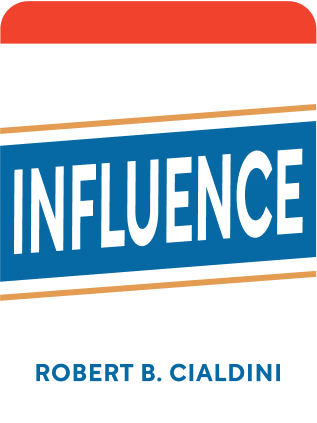

This article is an excerpt from the Shortform summary of "Influence" by Robert B. Cialdini. Shortform has the world's best summaries of books you should be reading.
Like this article? Sign up for a free trial here .
Have you ever been dazzled by someone’s personality? Maybe they were being charismatic or just generally feel like a warm person. If someone had likeability, would you be more likely to trust them?
Likeability is a personal characteristic similar to charisma in which a person easily gains others’ affections. It is a quality known to be useful in manipulating people. See past likeability and don’t get manipulated.
What Is Likeability?
The Liking Principle stipulates that we’re more likely to comply with requests from people that we know and like. Thus, we are more amenable to the compliance efforts of neighbors, friends, and family, or from people who claim to know them. We are also more willing to acquiesce to people who we see as being charismatic, good-looking, affable, or who profess to like us.
As you’ve probably guessed, however, this principle of human behavior creates a wide opening for compliance practitioners who wish to exploit it for personal gain. If they can get us to like them by being charismatic, we’re much more likely to be putty in their hands. If you like the seller, you’ll like what she’s selling.
Looking Past Likeability
So, how do you resist the charms of seemingly likeable and personable compliance practitioners? It’s hard to come up with a single rule or a one-size-fits-all defense tactic for a simple reason: there is enormous variability in what each of us considers to be likeable.
As with the defenses against the other fixed-action manipulations, it all comes back to recognition. You can’t simply commit yourselves to not liking anyone. That path leads only to isolation and unhappiness. Instead, you should let yourself like people you find being charismatic, but be aware when you feel that you like someone more than you should given the circumstances.
If you like someone or something more quickly or more intensely than it would be reasonable to, hit the pause button and rethink. For example, if you find yourself liking a salesperson after less than an hour of interacting with her, you might want to ask yourself some questions to see if she did anything that might have tipped unduly influenced your judgement:
- Did she give you any personal compliments?
- Did she make you laugh?
- Did she give you any gifts?
If you can answer “yes,” then you should mentally separate likeability of the person from likeability of the thing they’re trying to get you to comply with.
Make decisions based solely on the pros and cons or on the intrinsic merits of that decision. Don’t fall into the trap of likeability and say “yes” to people simply because you like them personally.

———End of Preview———
Like what you just read? Read the rest of the world's best summary of Robert B. Cialdini's "Influence" at Shortform .
Here's what you'll find in our full Influence summary :
- How professional manipulators use your psychology against you
- The six key biases you need to be aware of
- How learning your own biases will help you beat the con men around you






